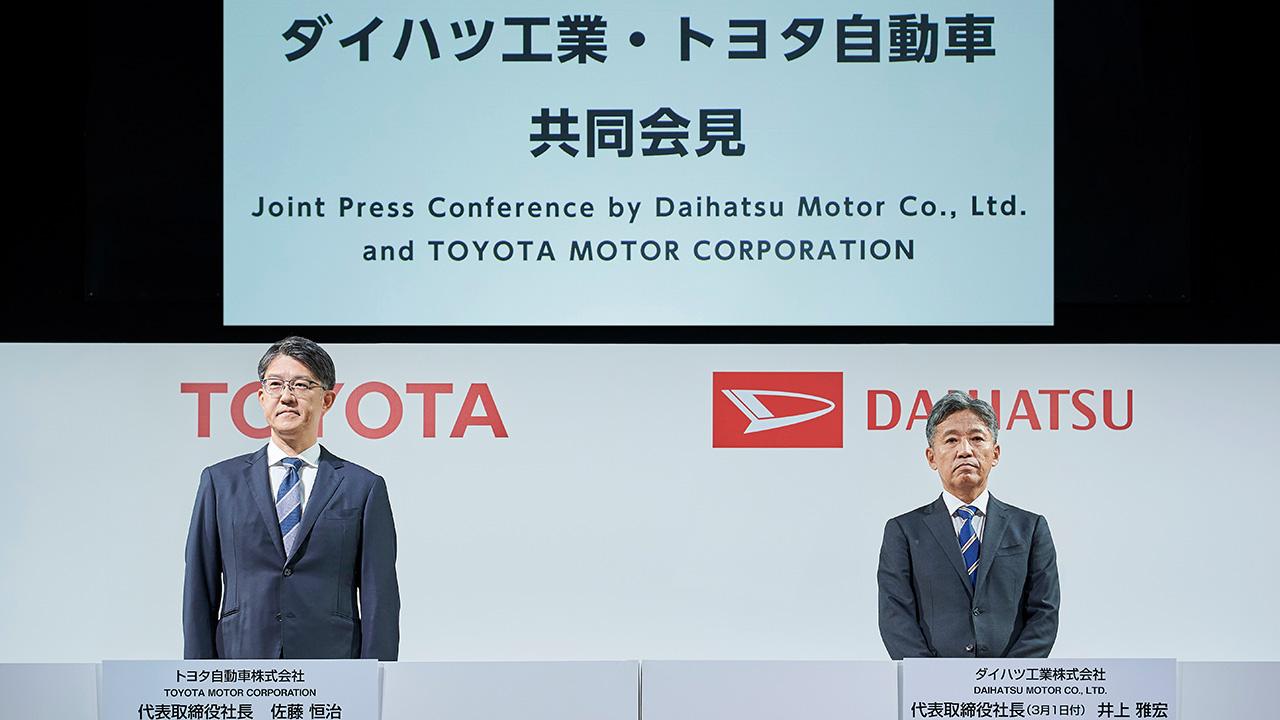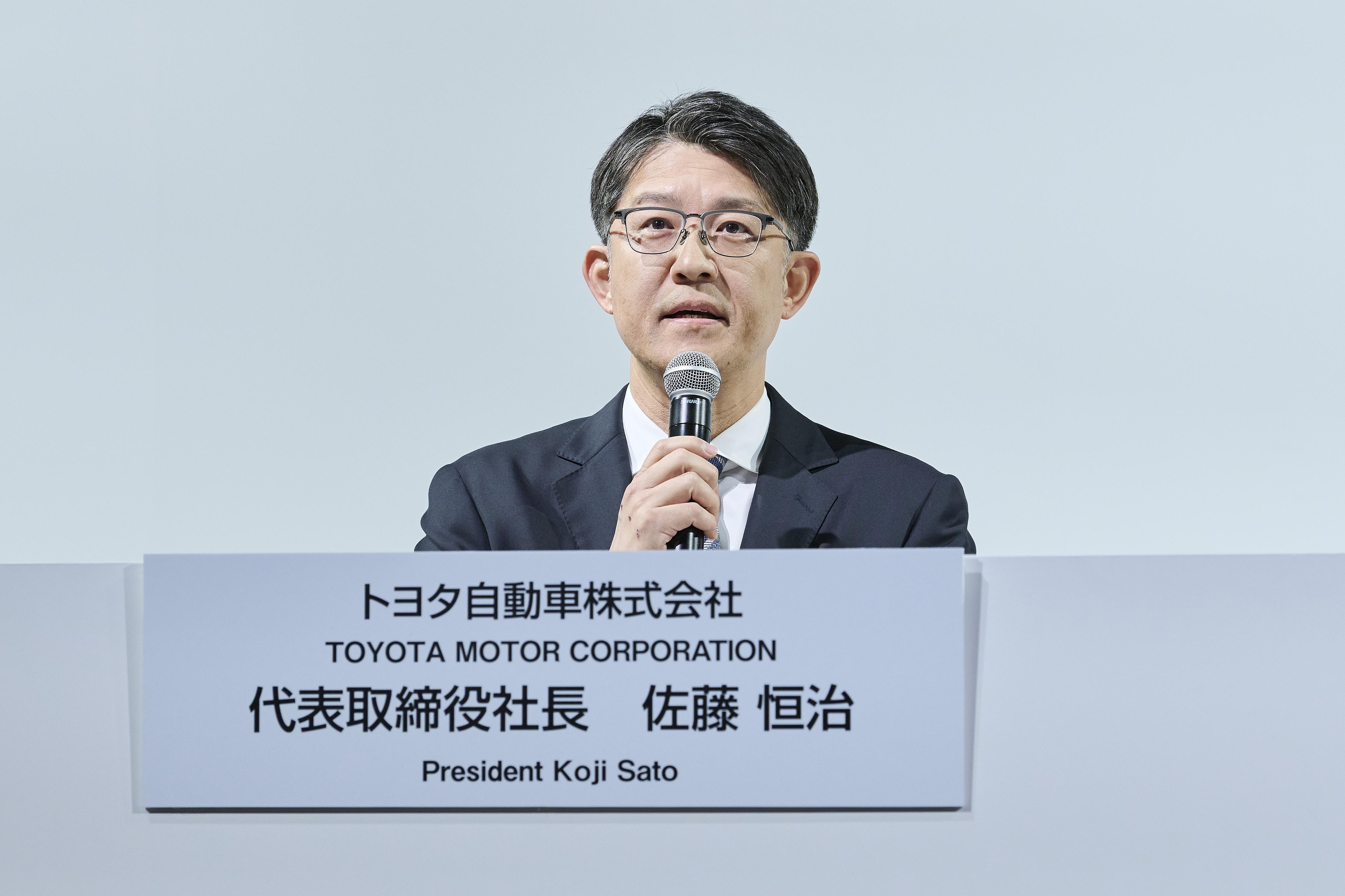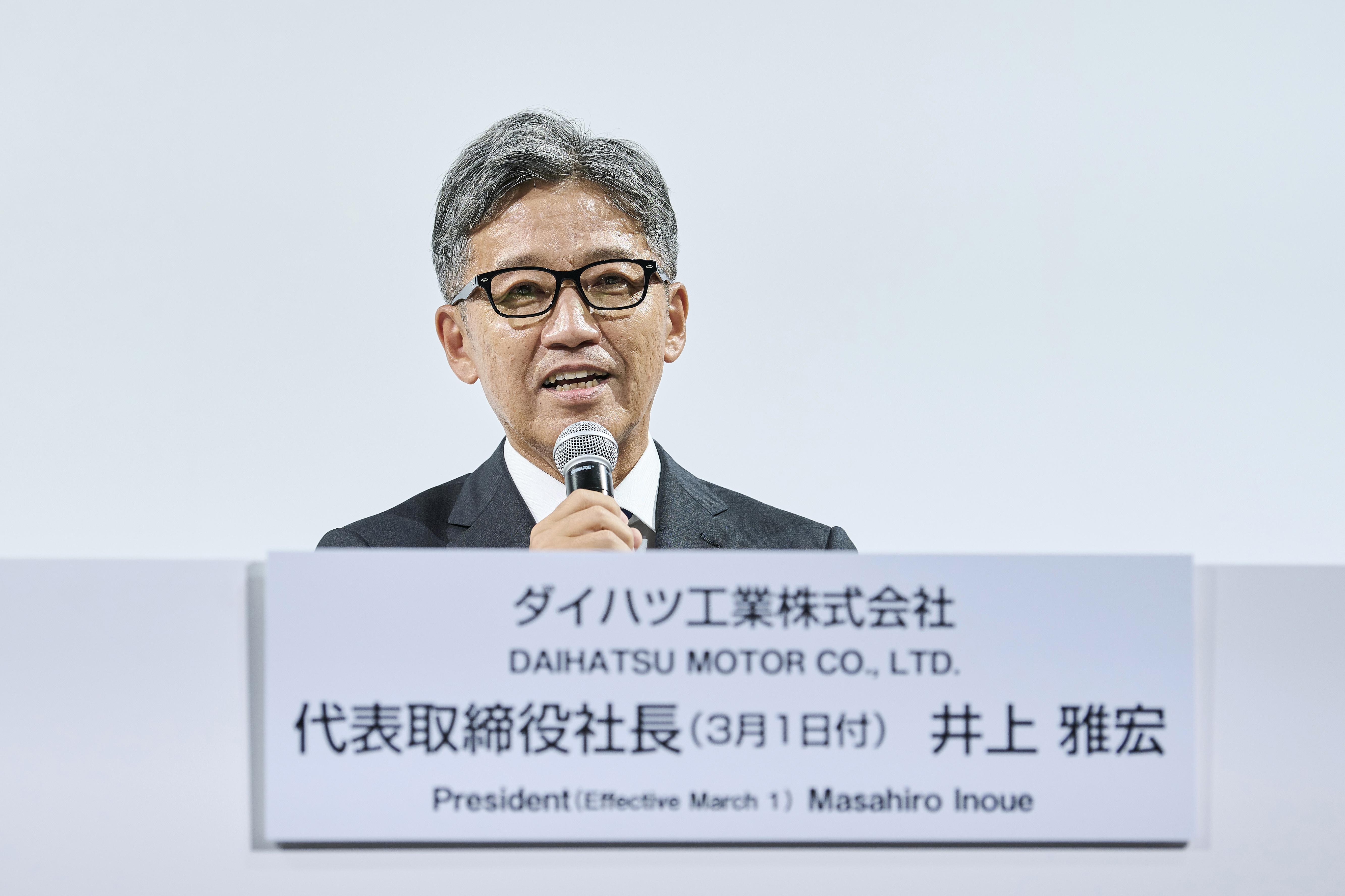
Toyota and Daihatsu held a press conference to announce Daihatsu's new leadership. We unpack the comments made at the event to find out how the incoming team plans to revitalize the company.
The Toyota-Daihatsu relationship under new leadership
Many of the past presidents have come from Toyota. How will President Inoue’s appointment change the relationship between Toyota and Daihatsu?
Incoming President Inoue
I recently had a chance to speak with President Okudaira.
Our paths have often crossed since his time at Toyota, both as an engineer and in managing overseas operations and sales.
He commented that Daihatsu is by nature a very good company with technical capabilities and competitive strengths.
Having lived in emerging countries, I feel that I understand the company’s technical prowess and competitiveness in making compacts and minivehicles and know what I want in these cars.
This is the context in which the irregularities occurred. In terms of our overseas compact vehicles, I will consult with President Sato and pursue reforms to ensure such problems do not recur, drawing on the strengths of both Toyota and Daihatsu to move in a positive direction for all stakeholders.
Reforming Daihatsu requires the company to collaborate closely with Toyota. How will top management communicate with each other?
President Sato
Inoue serves as a regional CEO, and we have continued to speak every week since Toyota’s new leadership team was set in place. Our relationship allows for very frank conversations.
While this was not a reason for his appointment, Inoue holds a guiding philosophy very close to my own mindset: when in doubt, go forward. He is a person who engages with issues and works for solutions by prioritizing action.
In particular, his long experience overseeing emerging markets means he is very knowledgeable about certification, and he also possesses a sound understanding of the current situation.

Incoming President Inoue
Since Akio Toyoda’s presidency, the company’s management has revolved around two axes: products and regions.
Almost every week, the regional CEOs and company leaders meet to discuss what is happening now and what is likely to happen in the future. We speak for at least 30 minutes a week.
While remaining respectful, I have always said what I want to say, conveying the situation on the ground for the management to make decisions.
Even as our positions change, it’s crucial that we maintain such regular communication to be prepared for contingencies.
I’m from the Kansai region, and my father ran his own business, so seeing minitrucks in action is among my formative experiences.
Having grown up amid the smell of oil at dealerships, I am thrilled to be able to work for Daihatsu.

It must be difficult for Daihatsu to raise issues with Toyota in certain respects. In light of past challenges, what support will Toyota provide moving forward?
President Sato
I believe that a commitment to genba-led management will help to reform the culture.
For us, work mostly tends to happen in the conference room, but from there, it is hard to understand anything. We need to visit the front lines, talk to people, see what is happening, and wrestle with the problems together.
I feel that I myself was lacking in this regard, and we must start by making a conscious effort.
It takes a terribly long time to get people saying what they really think. That is what we need to do moving forward.
Indeed, since the irregularities were discovered, we have been treating this as a Toyota Group-wide issue. Acting on Chairman Toyoda’s behalf, Toyota Motor East Japan Chairman Kazuhiro Miyauchi has been a constant presence on the ground at Daihatsu, carefully gathering word on what happened.
This is part of our efforts to, in Chairman Toyoda’s words, “return authority to the genba,” and we, too, must put them into practice.
Visiting the genba in person is also important in my relationship with Inoue, to ensure that in our conversations, he can feel that I understand his difficulties and will provide support in making improvements. I believe he is similarly committed.

